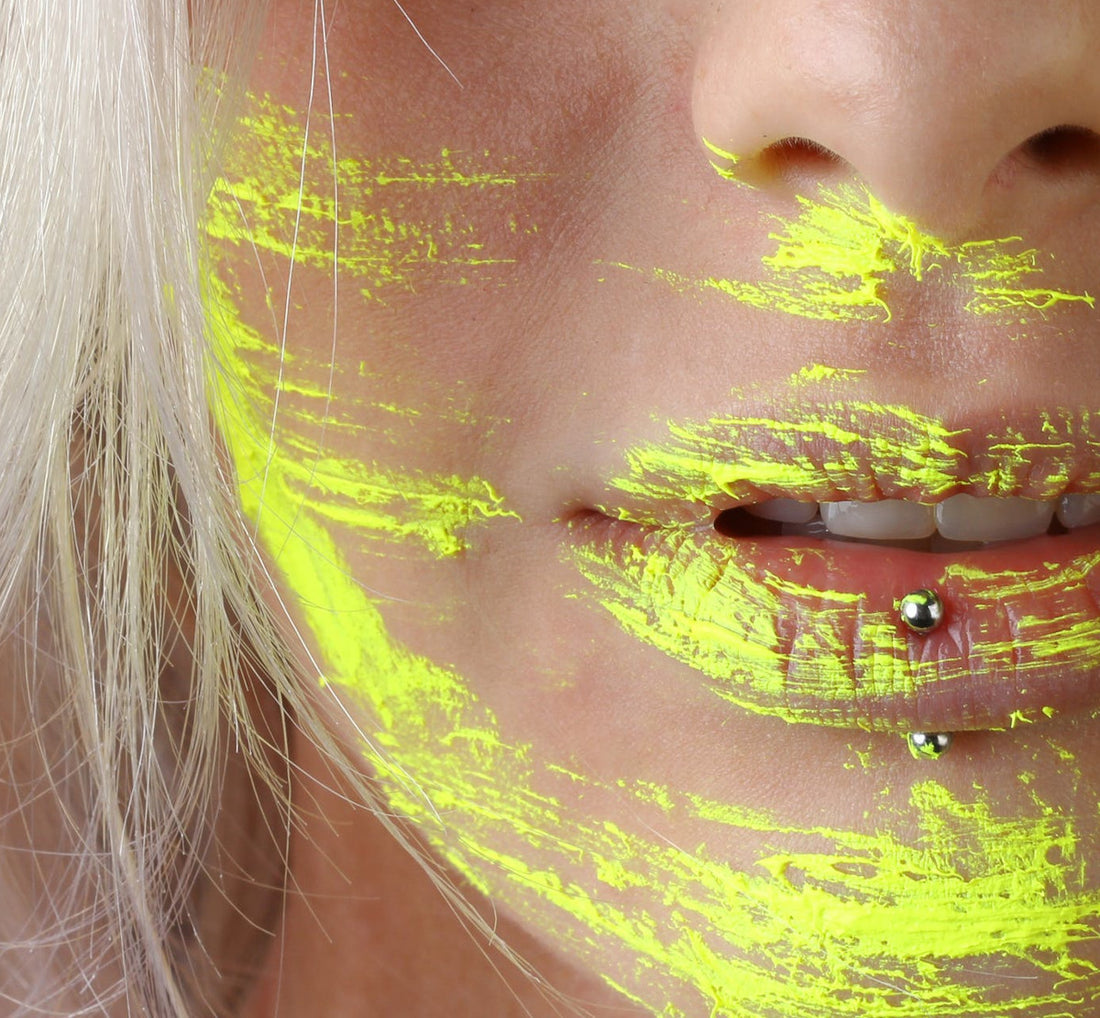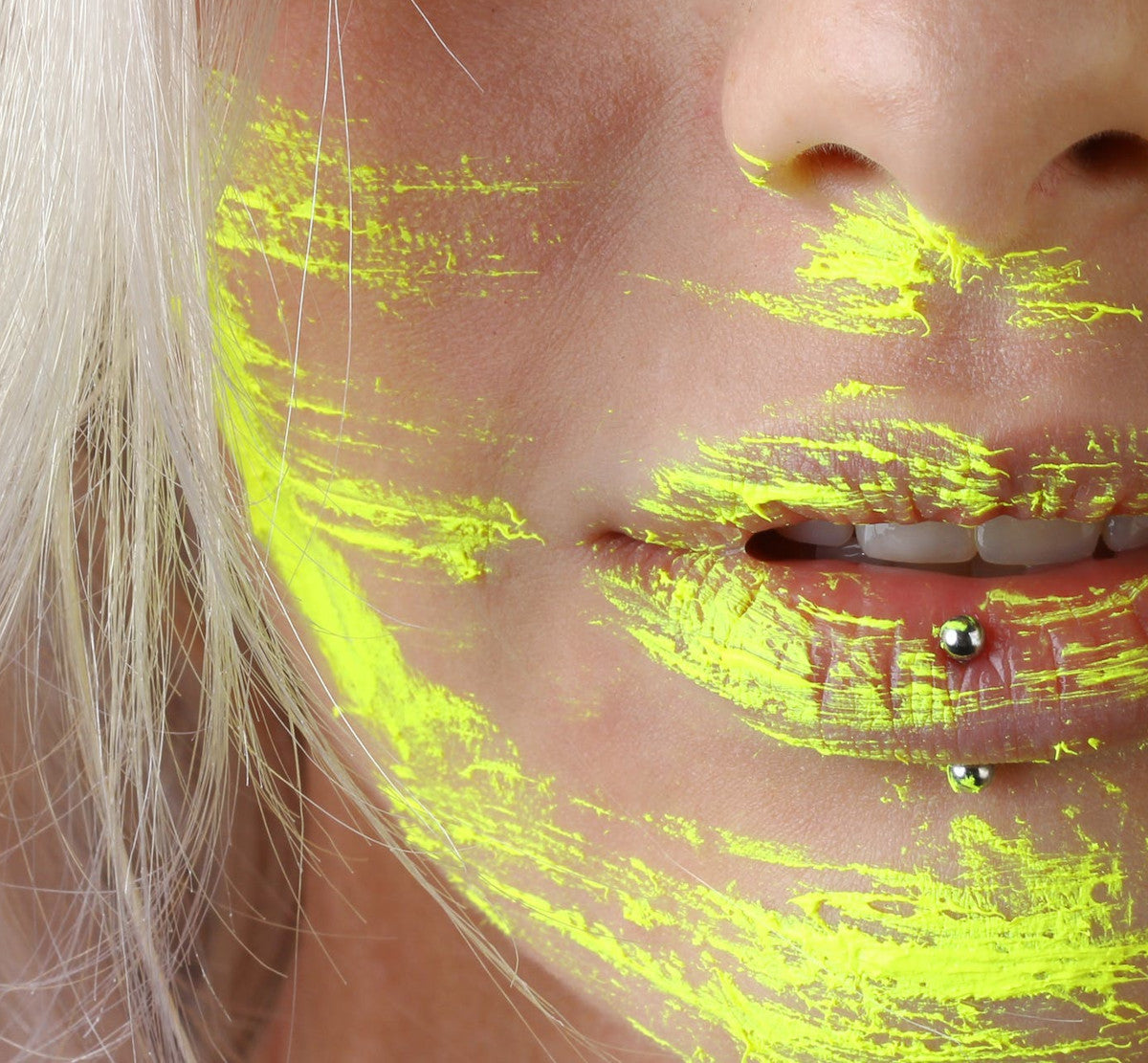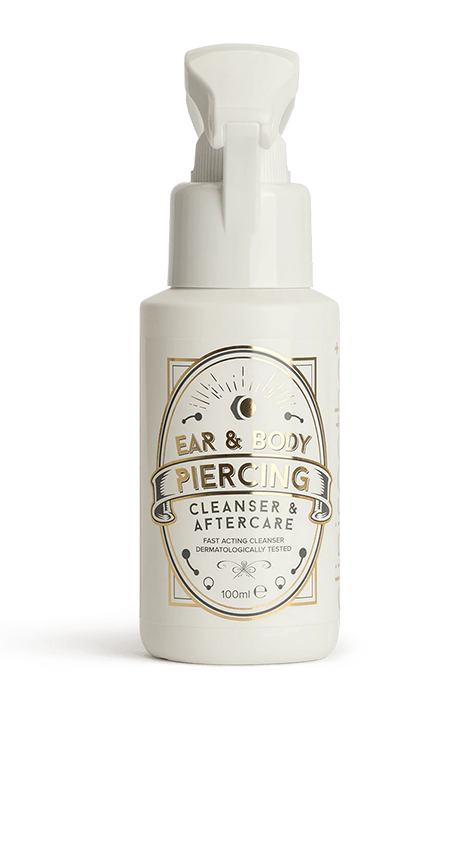How to Prevent Piercing Infection: Best Cleanser & Aftercare
Share


Body piercings are a popular form of self-expression, but they come with certain risks, one of which is infection. Firstly, how to prevent piercing infection? While piercing infections are not uncommon, they are largely preventable. In this comprehensive guide, we will explore the steps you can take to ensure your piercing heals smoothly
Understanding Piercing Infections
Piercing infections occur when bacteria or other pathogens invade the wound created by the piercing needle or jewelry. These infections can range from mild to severe, and their severity often depends on how well you care for your piercing.
What Causes Piercing Infections?
The primary culprits behind piercing infections are bacteria. When a piercing is not properly cleaned or maintained, bacteria can enter the wound, leading to inflammation and infection. Poor hygiene practices, low-quality jewelry, and unsterile piercing environments can all contribute to infection risk.
Signs and Symptoms of Piercing Infections
Recognizing the early signs of a piercing infection is crucial for prompt treatment. Common symptoms include redness, swelling, tenderness, and discharge. If you notice any of these symptoms, it's essential to act quickly to prevent the infection from worsening.
Taking Care of Your Piercing
Proper care and hygiene with the best piercing cleanser are your best defenses against piercing infections. Let's delve into the steps you should take to keep your piercing healthy.
Choosing a Professional Piercer
The first step in infection prevention begins with selecting a reputable and professional piercer. Ensure that your piercer follows strict hygiene protocols, uses sterilized equipment, and provides aftercare instructions.
Aftercare Tips
After getting a piercing, following the recommended aftercare instructions is vital. Clean your piercing daily with Clinisept+ solution, avoid touching it with dirty hands, and refrain from rotating or twisting the jewelry.
Cleaning Your Piercing
Cleaning your piercing is a crucial part of the healing process. We'll explain the proper way to clean your piercing to minimize infection risk.
How to prevent Piercing Infection
Learn about the common mistakes people make when caring for their piercings and how to avoid them. These pitfalls can increase the risk of infection.
Lifestyle Adjustments
Your daily habits and activities can also impact the healing process of your piercing. Let's explore some lifestyle adjustments that can help prevent infection.
Avoiding Swimming and Hot Tubs
Chlorinated water in swimming pools and hot tubs can irritate your piercing and introduce bacteria. Discover how to protect your piercing when you're around water.

Clothing Choices
Your clothing choices matter when you have a new piercing. Find out which fabrics and clothing styles can minimize irritation and infection risk.
Mindful Jewelry Selection
Choosing the right jewelry for your piercing is essential. Learn about the materials and types of jewelry that are less likely to cause irritation or infection.
When to Seek Medical Attention
Despite your best efforts, infections can still occur. Understand when it's time to consult a medical professional for proper treatment.
Finally, how to Prevent Piercing Infection?
Preventing piercing infections is within your control. Start with choosing a reputable piercer, following after care instructions, and making lifestyle adjustments. With these steps, you can enjoy your new piercing without the worry of infection.
Questions people mostly ask
-
How long does it take for a piercing to heal completely?
- The healing time can vary on the piercing type, but it usually takes several weeks to several months. Consult your piercer for specific help.
-
Can I use alcohol or hypochlorous technology to clean my piercing?
- it's best to use hypochlorous technology, as the best piercing after care solution recommended by world famous dermatologists.
-
Is it normal for my piercing to itch during the healing process?
- Yes, some itching is normal as the tissue heals. However, refrain from scratching, as it can introduce bacteria and worsen the situation.
-
What should I do if I suspect my piercing is infected?
- If you notice signs of infection, such as redness, swelling, or discharge, consult your piercer or a healthcare professional as soon as possible for evaluation and treatment.
-
Can I change my jewelry while my piercing is healing?
- It's generally best to wait until your piercing is fully healed before changing the jewelry. Consult your piercer for advice on when it's safe to make the switch.

